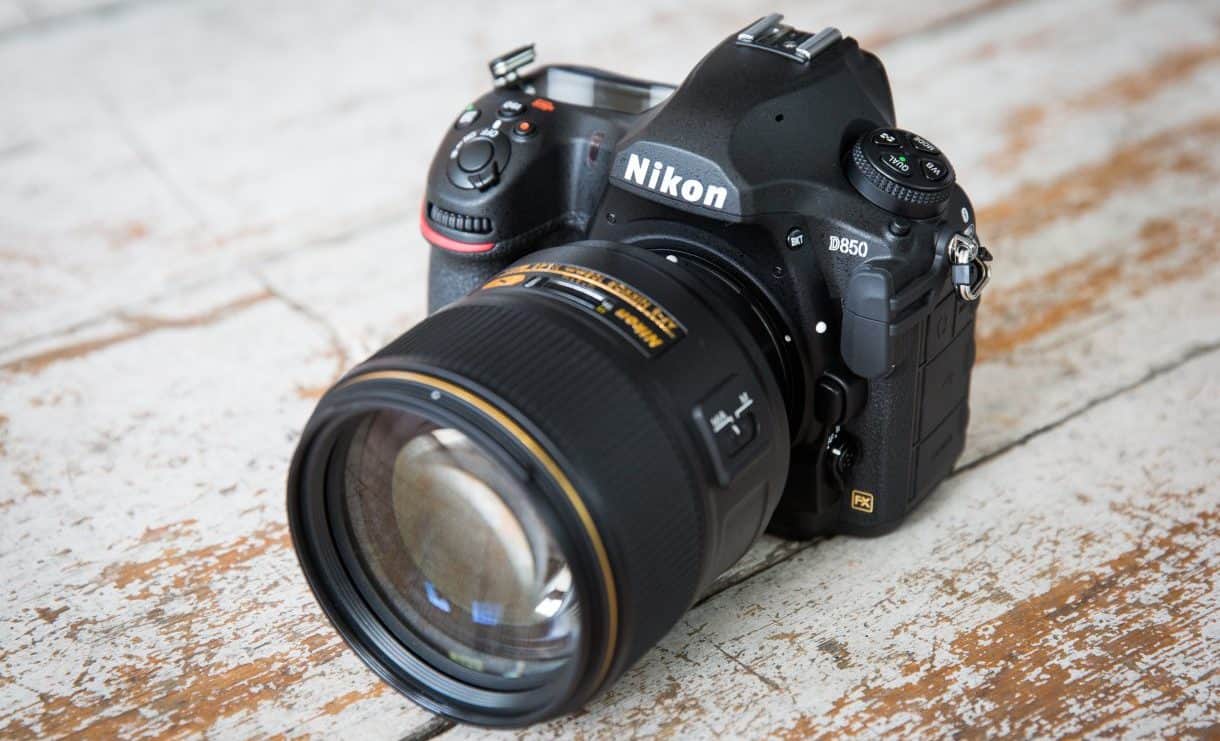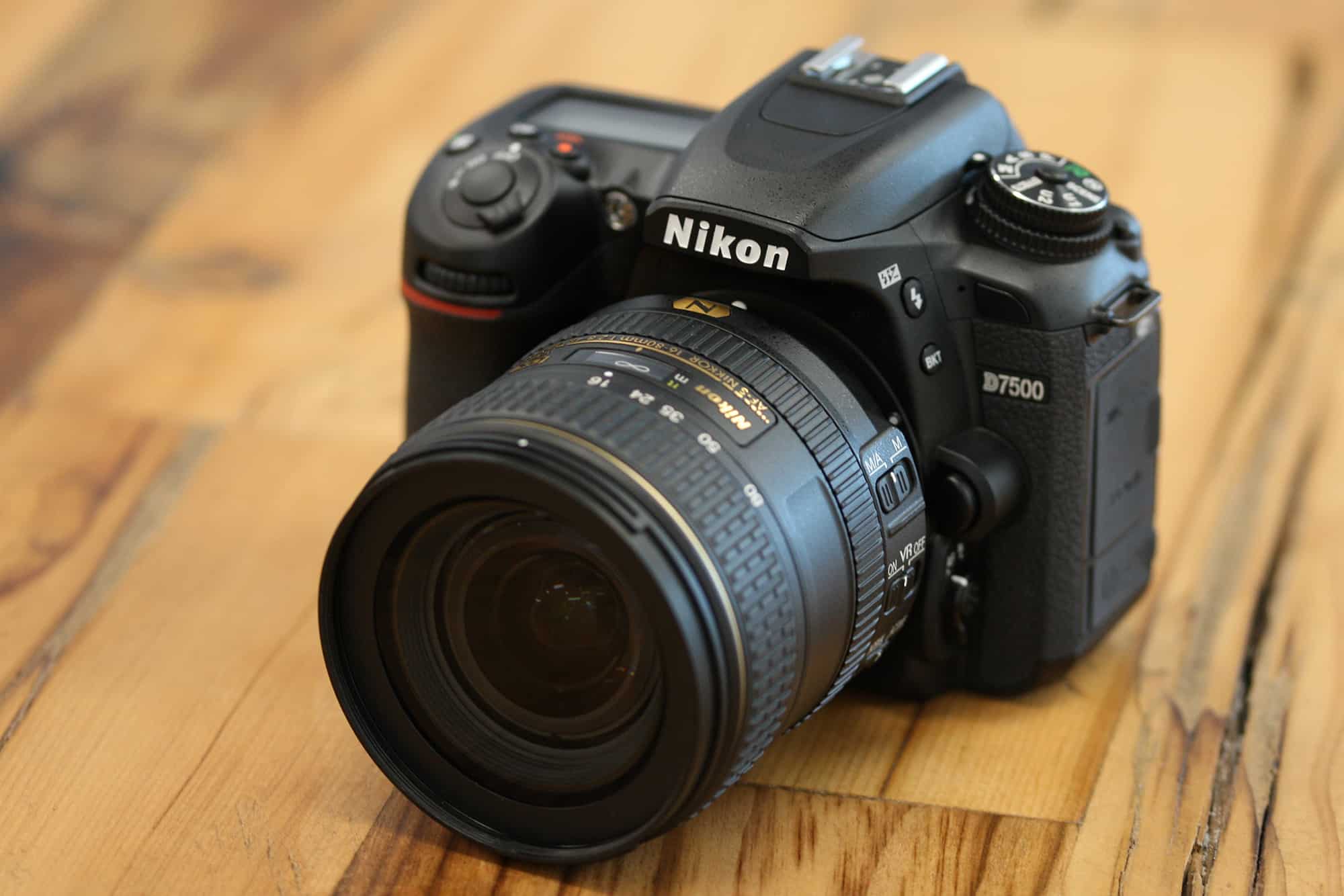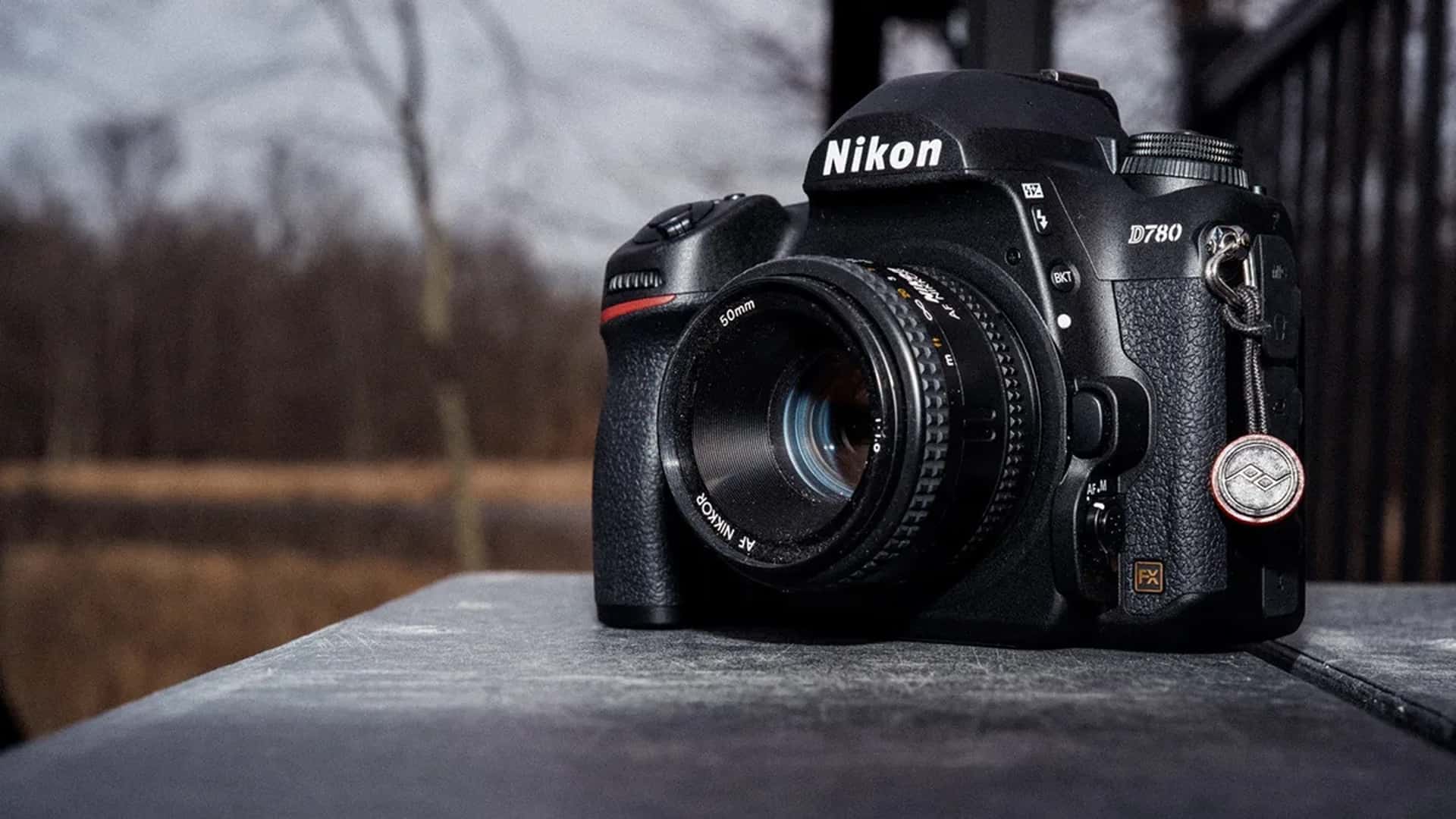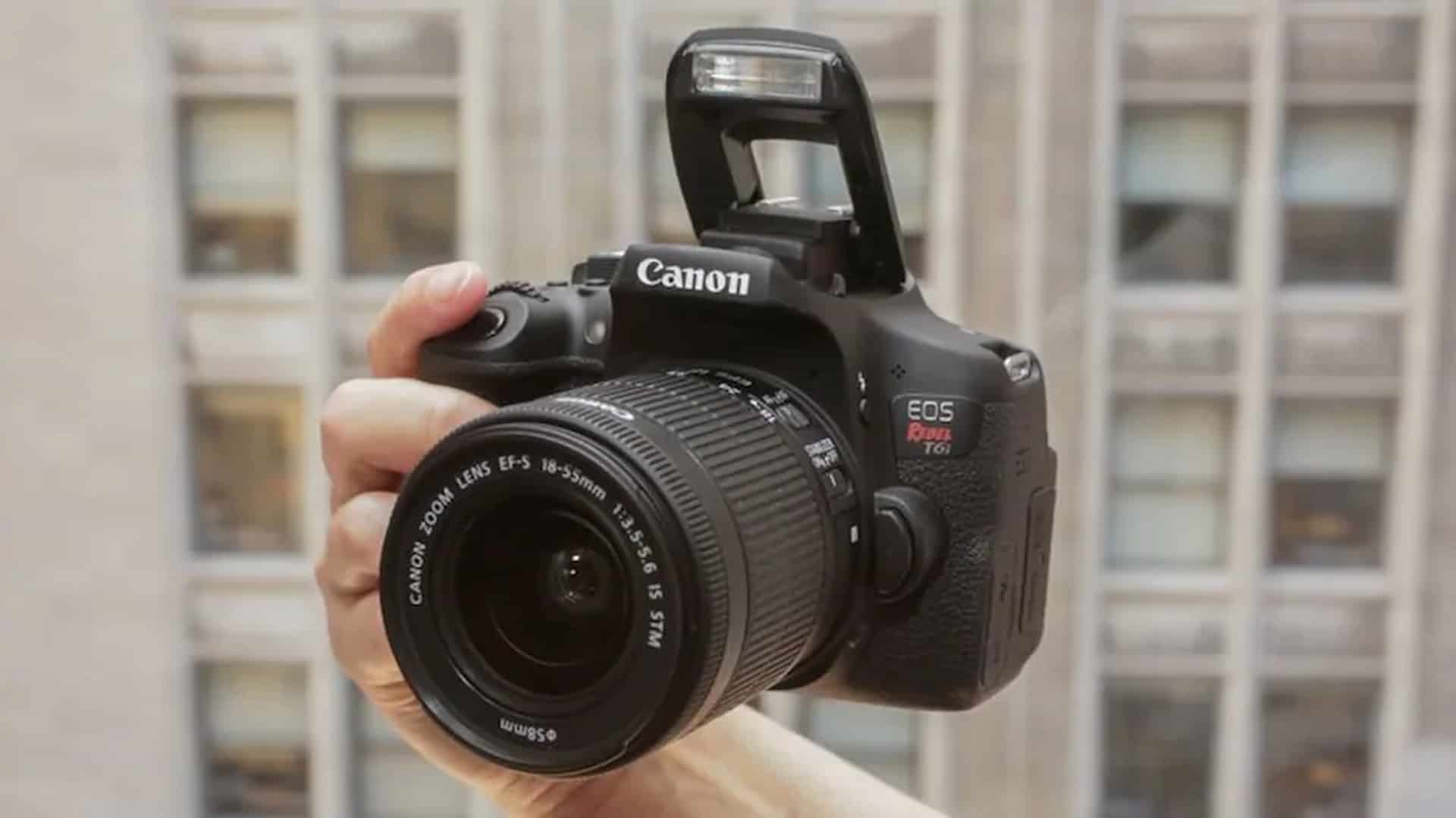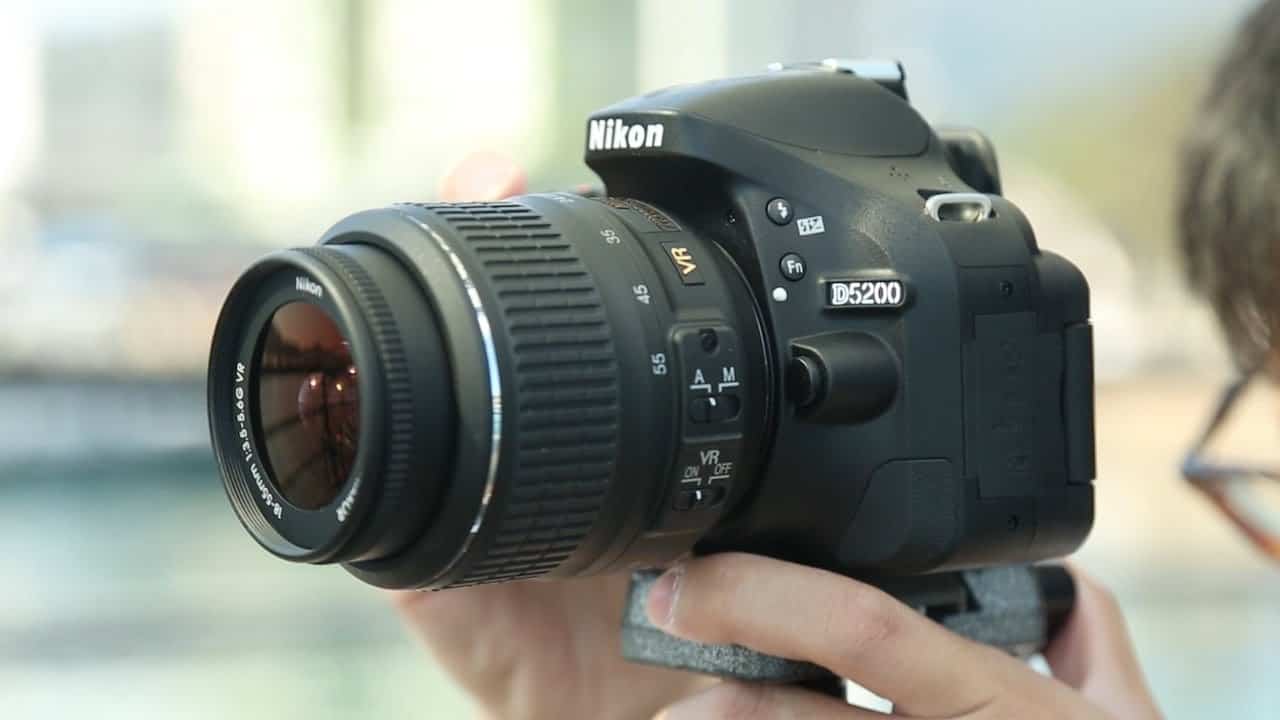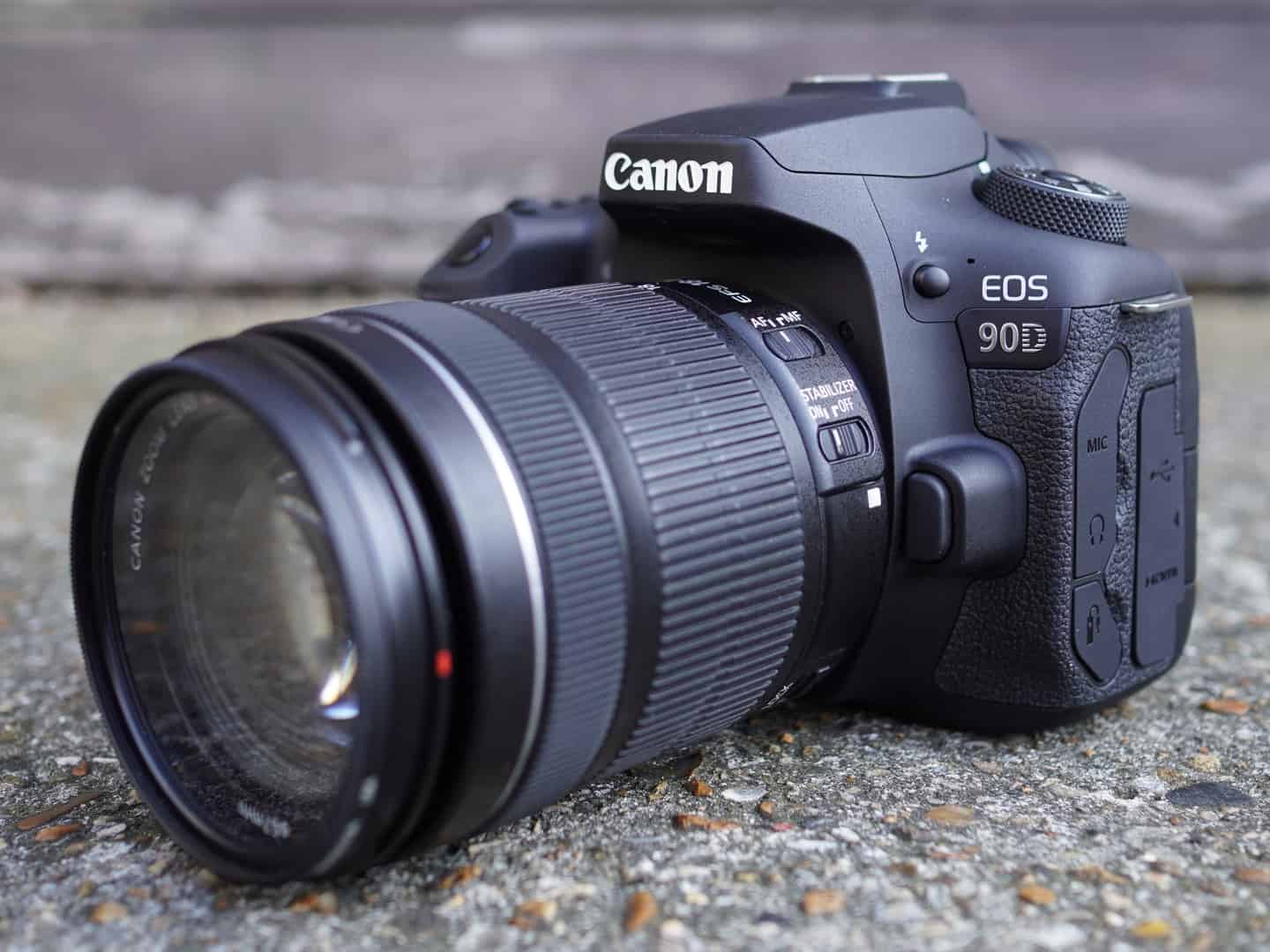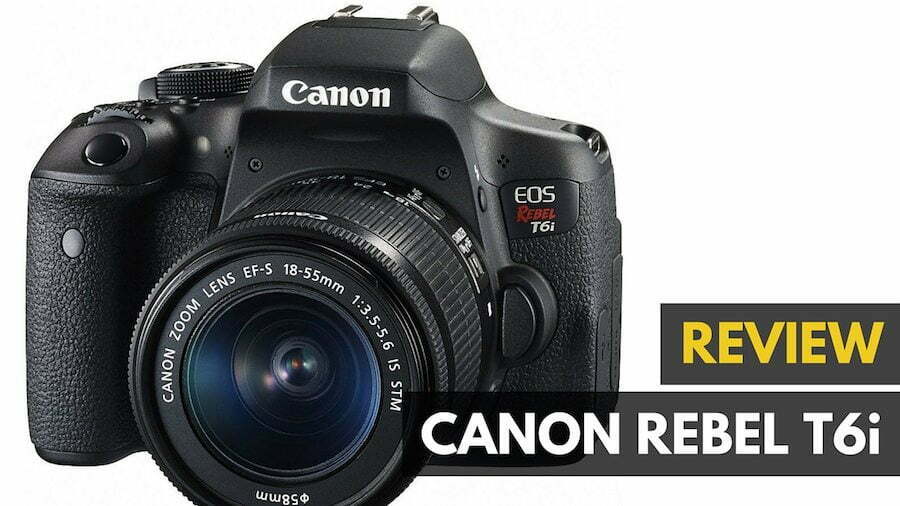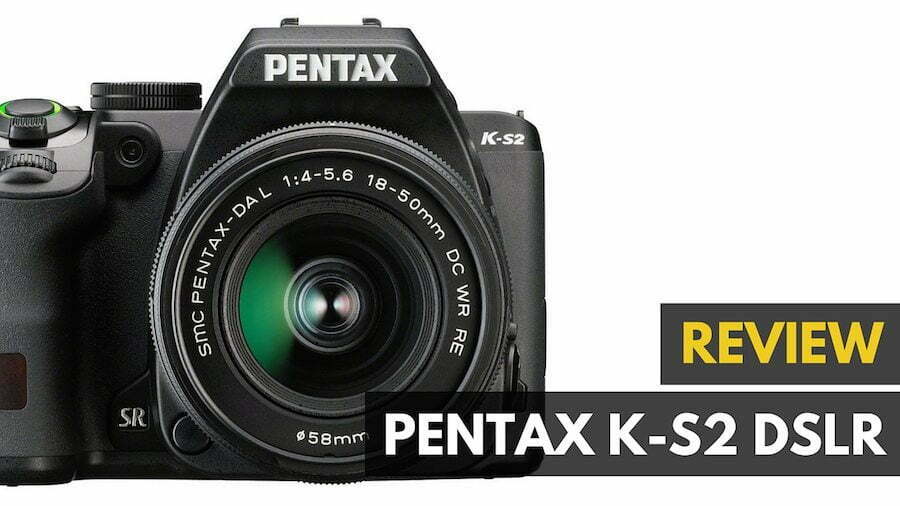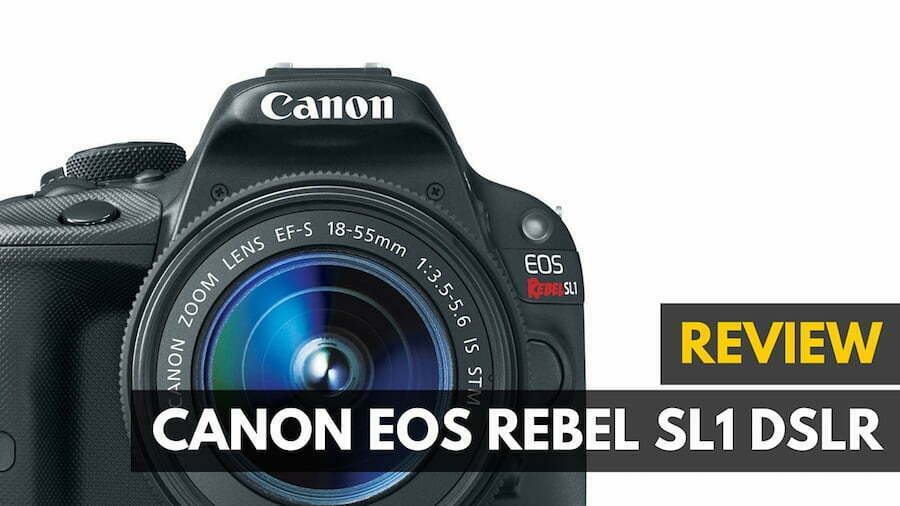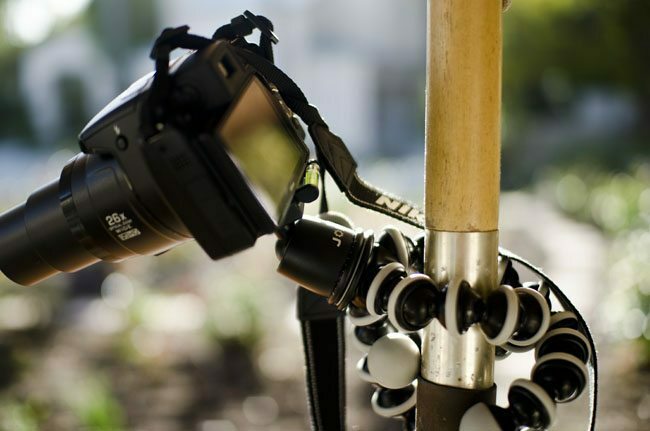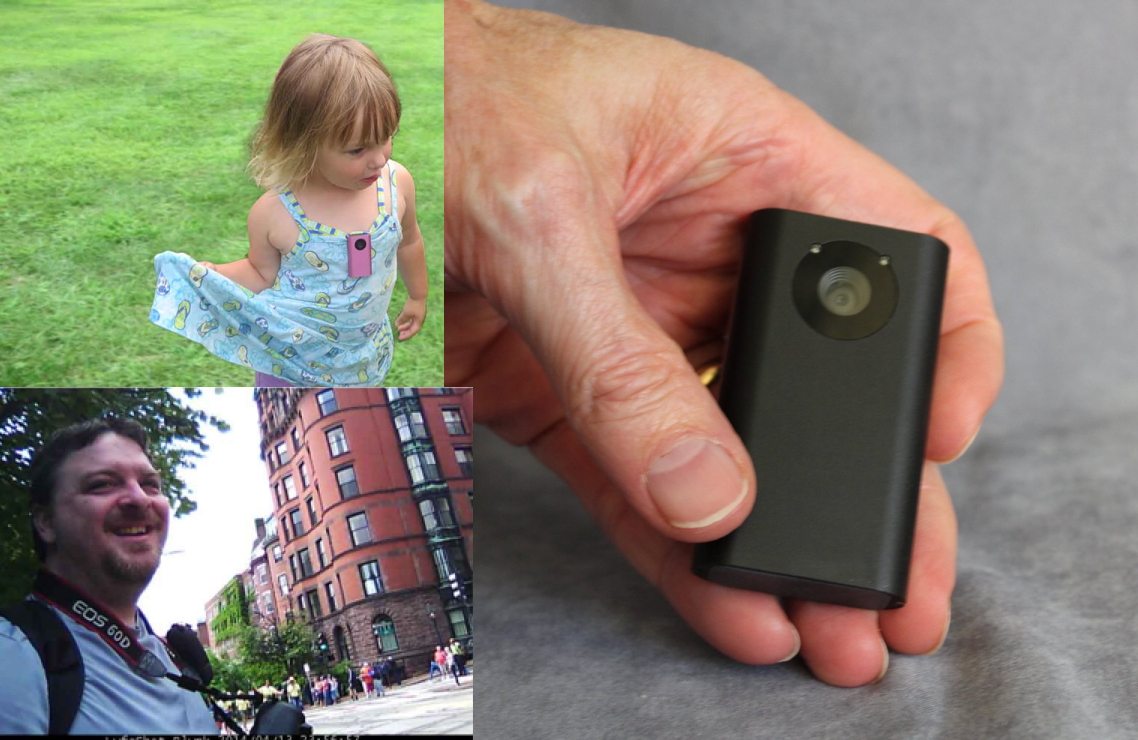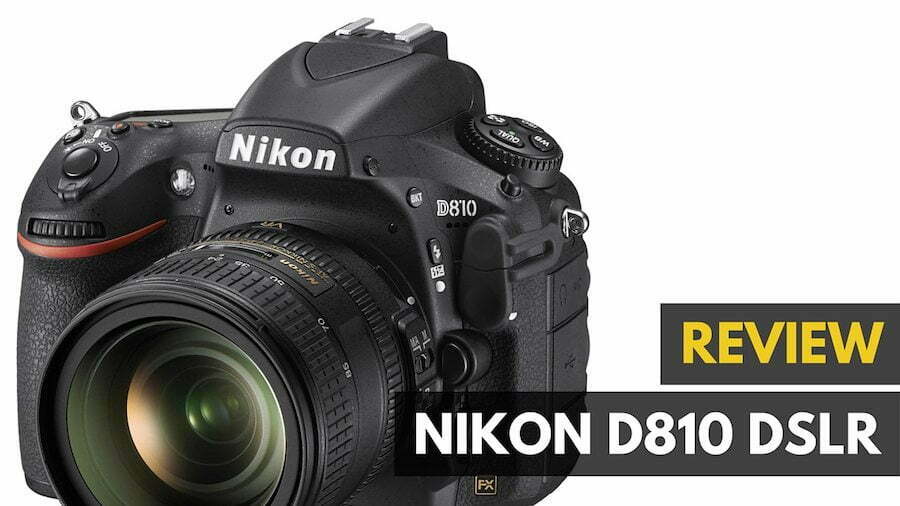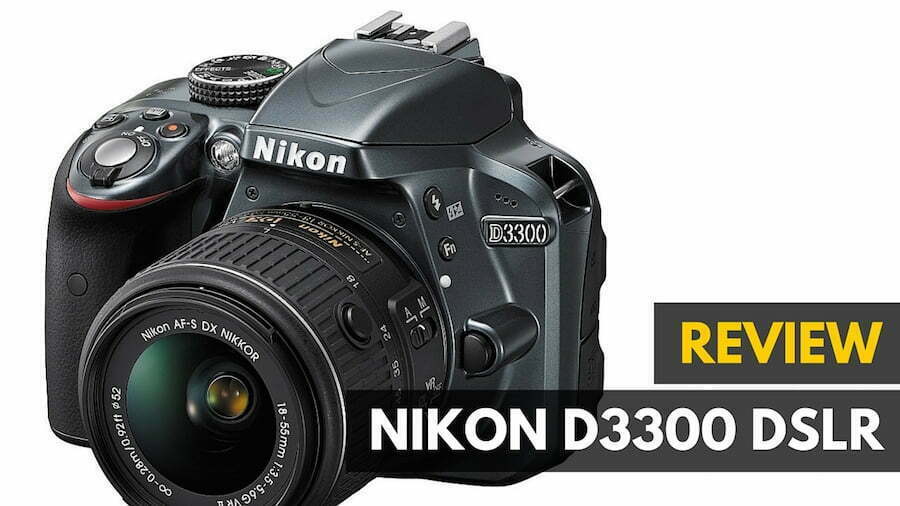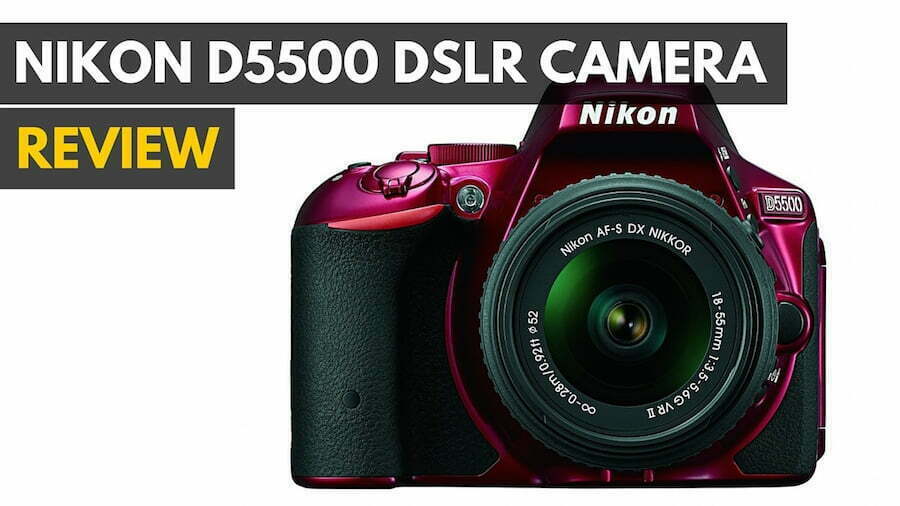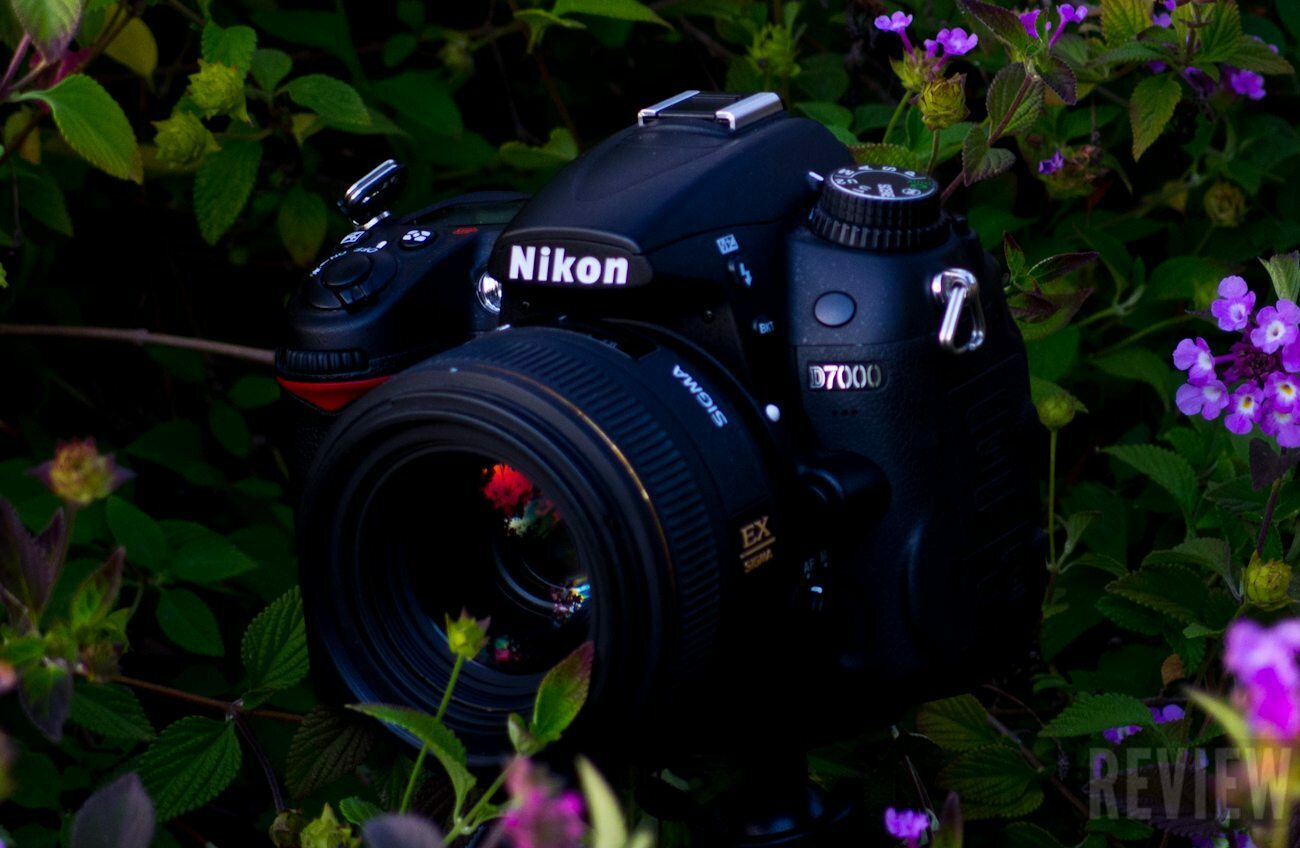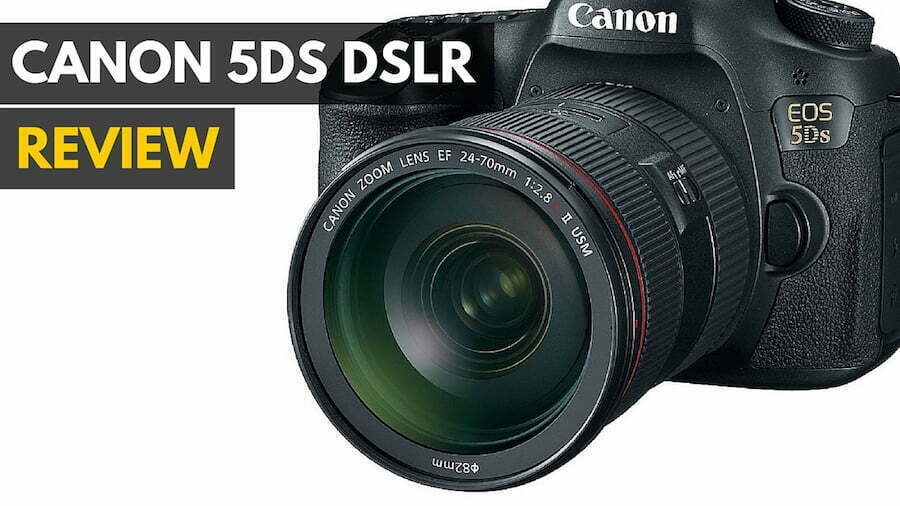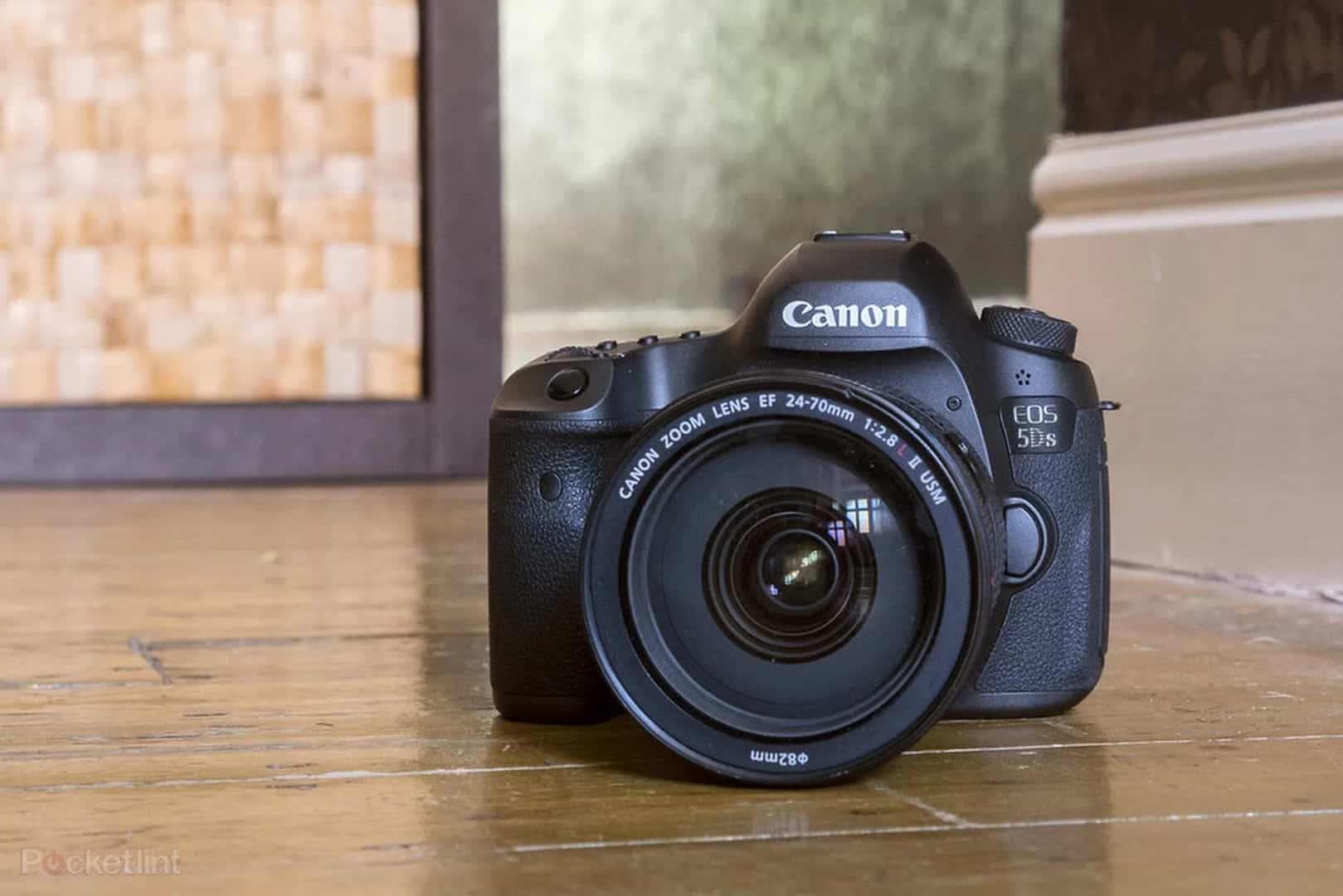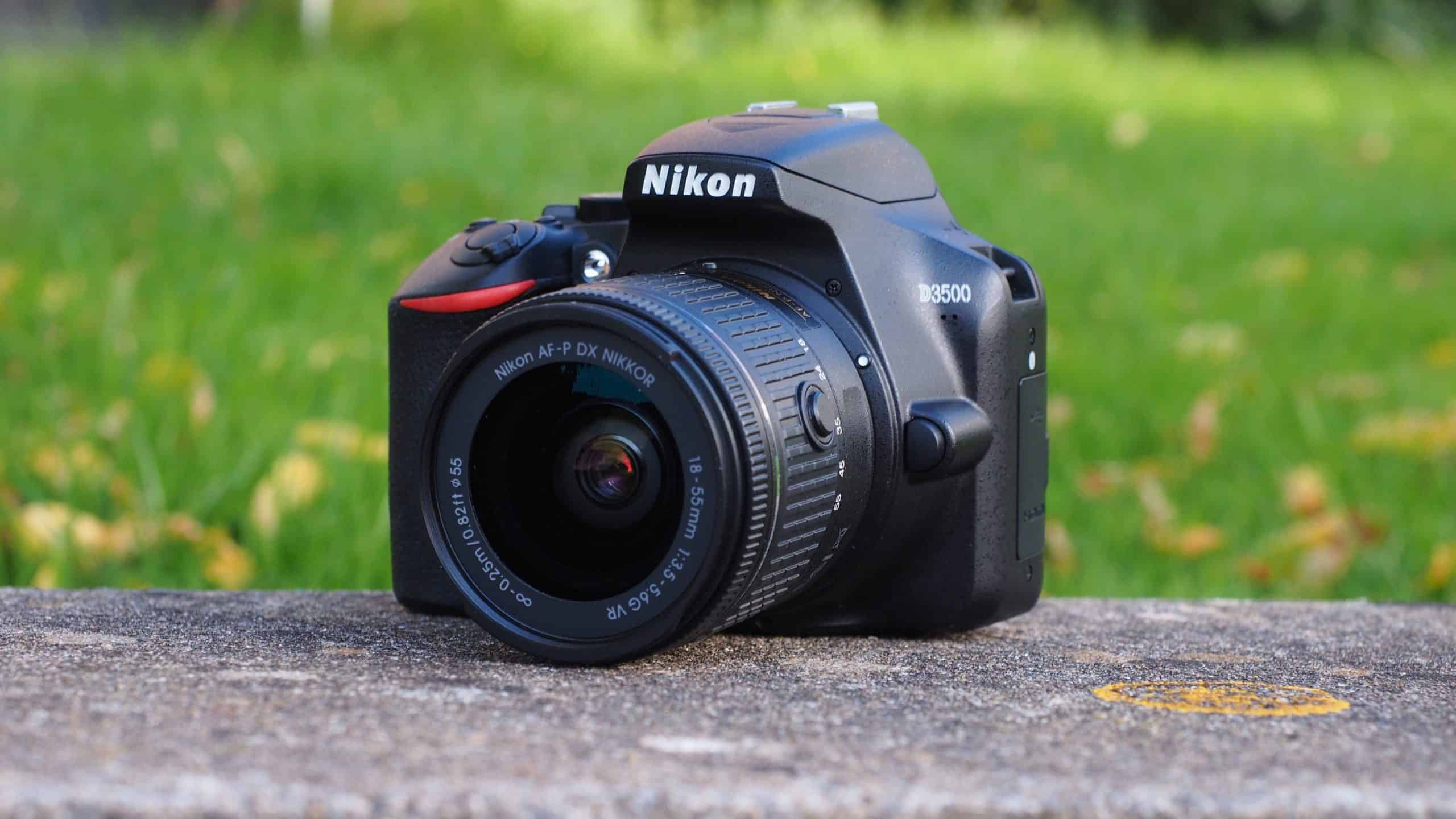While beginners in digital photography may find themselves looking at point-and-shoot cameras for a first camera, there’s another option: the best DSLR camera for beginners. With a DSLR, a newbie to digital photography can not only capture images with exceptional quality, but it can meet their needs as their knowledge of photography expands, offering both automatic and manual control options. The pictures that you take with the Canon will have everyone giving image credit to the pictures that you take.
For a long time in digital photography, a DSLR camera would have been too difficult for a beginner to use, leading to constant frustration for the first-time photographer. However, when seeking the best entry-level DSLR camera in today’s market, you’ll find camera makers have done a nice job of making DSLRs that are easy to use. Another reason that you might want a DSLR camera is that all Canon DSLR cameras currently have a live view to see a preview of your picture.
The best DSLR camera for beginners from Nikon, Canon, and other manufacturers will cost a bit more than what you might find with a basic, point-and-shoot camera. But your investment will pay off in great image quality and a camera that can keep up with your growing photography skills. By the end of this review, you’ll have the best camera for you.
Top Rated DSLR Camera For Beginners
![Best DSLR Camera for Beginners in [year] 5 Canon-SL1-Best-DSLR-Camera-for-Beginners](https://www.gadgetreview.dev/wp-content/uploads/2014/08/Canon-SL1-Best-DSLR-Camera-for-Beginners.jpg) | ![Best DSLR Camera for Beginners in [year] 6 Nikon-D3300-Best-DSLR-Camera-for-Beginners](https://www.gadgetreview.dev/wp-content/uploads/2014/08/Nikon-D3300-Best-DSLR-Camera-for-Beginners.jpg) | ![Best DSLR Camera for Beginners in [year] 7 Pentax-K-S2-Best-DSLR-Camera-for-Beginners-2](https://www.gadgetreview.dev/wp-content/uploads/2014/08/Pentax-K-S2-Best-DSLR-Camera-for-Beginners-2.jpg) | ![Best DSLR Camera for Beginners in [year] 8 Nikon-D5200-Best-DSLR-Camera-for-Beginners](https://www.gadgetreview.dev/wp-content/uploads/2014/08/Nikon-D5200-Best-DSLR-Camera-for-Beginners.jpg) | ![Best DSLR Camera for Beginners in [year] 5 Canon-SL1-Best-DSLR-Camera-for-Beginners](https://www.gadgetreview.dev/wp-content/uploads/2014/08/Canon-SL1-Best-DSLR-Camera-for-Beginners.jpg) | |
|---|---|---|---|---|---|
| Canon EOS Rebel T6i DSLR | Nikon D3300 DSLR | Pentax K-S2 | Nikon D5200 DSLR | Canon EOS Rebel SL1 DSLR | |
| Ranking | #1 | #2 | #3 | #4 | #5 |
| Image Sensor | APS-C (22.3 x 14.9mm) | APS-C (23.5 x 15.6mm) | APS-C (23.5 x 15.6mm) | APS-C (23.5 x 15.6mm) | APS-C (22.3 x 14.9mm) |
| Resolution | 24.2 MP | 24.2 MP | 20.1 MP | 24.1 MP | 18.0 MP |
| Maximum Burst Mode | 5 fps | 5 fps | 5.4 fps | 5 fps | 4 fps |
| Autofocus System | 19-point AF | 11-point AF | 11-point AF | 39-point AF | 9-point AF |
| ISO Range | 100 to 25600 | 100 to 25600 | 100 to 51200 | 100 to 25600 | 100 to 25600 |
| Display Screen Options | 3-inch articulated & touchscreen | 3-inch articulated | 3-inch articulated | 3-inch articulated | 3-inch touchscreen |
| Wireless Options | Wi-Fi & NFC | Wi-Fi optional adapter | Wi-Fi and NFC | Wi-Fi optional adapter | None |
| Lens Mount | Canon EF mount | Nikon F mount | Pentax K mount | Nikon F mount | Canon EF mount |
| View on Amazon | View on Amazon | View on Amazon | View on Amazon | View on Amazon | View on Amazon |
#1 Canon EOS Rebel T6i DSLR Camera
Read Full Review: Canon Rebel T6i | Image Sensor Size: APS-C | Resolution: 24.2 MP
WHY IT’S A TOP PICK: Inexpensive DSLR camera provides excellent image quality
The Canon EOS Rebel T6i easily ranks as one of the best DSLR cameras for beginners, offering great image quality with its APS-C sized image sensor with 24.2 megapixels of resolution. It has a good burst mode of 5 frames per second, and its 19-point autofocus system is very accurate and works fast. If you’re looking for more great product recommendations, then visit our best Canon DSLR guide and our best Canon digital cameras article.
If you use the optical viewfinder with the T6i, you’ll receive extremely fast performance in all shooting situations, even when you aren’t working in burst mode. The viewfinder on this camera allows you to easily frame the scene, even if you’re working in bright sunlight where glare on the display screen can make it difficult to see clearly.
Like its cousin the Canon EOS 5DS, this camera has plenty of nice features aimed at inexperienced photographers too, including fully automatic shooting modes. The 3-inch display screen offers both the ability to swivel and twist away from the camera, as well as touch capabilities. Having a touchscreen on an entry-level DSLR is a great feature to make it easy to use. This camera has a shutter speed of up to 5 seconds of continuous shooting. That said, it could be a great digital camera for filmmaking.
#2 Nikon D3300 DSLR Camera
Read Full Review: Nikon D3300 | Image Sensor Size: APS-C | Resolution: 24.2 MP
WHY IT’S A TOP PICK: Very versatile entry-level DSLR with a great price point too.
One of Nikon’s best starter DSLR cameras is the Nikon D3300. It provides strong image quality, even in low light shooting conditions, and, like most DSLR cameras, it works very fast when you’re using the viewfinder to frame the scene. It offers 24.2 megapixels of resolution with an APS-C sized image sensor. However, if you want wireless connectivity, you’ll have to purchase an adapter separately. For a slightly more expensive Nikon, take a look at the Nikon D3500.
#3 Pentax K-S2 DSLR Camera
Read Full Review: Pentax K-S2 | Image Sensor Size: APS-C | Resolution: 20.1 MP
WHY IT’S A TOP PICK: Weatherproofed coating makes this DSLR a rugged performer.
The Pentax K-S2 doesn’t offer quite as much resolution as some other beginner-level DSLR cameras at 20.1 megapixels, but its image quality remains strong. The camera’s 5.4 frames per second burst mode are one of the performances, which makes it one of the best digital cameras for beginners. The K-S2 doesn’t have a touchscreen capability, but it is an articulated display screen, making this model easy to use with a tripod. The K-S2 is also a rugged camera, offering a weather-proofing coating.
#4 Nikon D5200 DSLR Camera
Image Sensor Size: APS-C | Resolution: 24.1 MP | Read Full Review: Nikon D5200 DSLR Review
WHY IT’S A TOP PICK: Accurate autofocus system great for capturing fast action
Nikon’s D5200 DSLR camera is a little older than some of the models on this list, so its price has dropped to the point where it’s a good candidate for an inexperienced photographer looking for a solid starter camera. One of the biggest advantages of the Nikon D5200 is its 39-point autofocus system, which is very impressive for a camera in its price range. However, there’s no touchscreen LCD or Wi-Fi connectivity with the D5200. If you’re willing to spend a bit more, check out the Nikon d5600 instead.
#5 Canon EOS Rebel SL1 DSLR
Read Full Review: Canon SL1 | Image Sensor Size: APS-C | Resolution: 18.0 MP
WHY IT’S A TOP PICK: Small DSLR body size doesn’t mean sacrificing top-notch image quality.
If you hesitate to purchase a DSLR as a starter camera because of its large size, you may want to consider the Canon EOS Rebel SL1, which is the smallest and lightest DSLR on the market. Despite its small size, it maintains good image quality at 18.0 megapixels of resolution. It’d be nice if the SL1 was a little bit of a faster performer, but it’s a good camera with strong features for beginners, including a touchscreen display and built-in Wi-Fi connectivity. Still, it might be a fine digital camera for kids to learn how to use.
What to Look for in the Best Entry-Level DSLR
Ease of Use: Because an entry-level DSLR camera is aimed at those new to digital photography, it needs to have plenty of easy-to-use features. Make sure that the camera has a fully automatic setting, which will allow even inexperienced photographers to begin using the camera immediately. A touchscreen display can simplify the camera’s operation as well.
Kit Lenses: A DSLR camera makes use of interchangeable lenses, meaning you can remove the lens from the camera and replace it with another lens with different capabilities, whereas a fixed lens camera has the lens built into the camera body. The best beginner DSLR camera will include one or two kit lenses, which are inexpensive starter lenses that allow you to begin using the DSLR camera immediately upon taking it out of the box. Some DSLR cameras will ship as the body only with no kit lenses, so if you don’t already own compatible lenses, make sure you pick a unit with a kit lens.
Size: DSLR cameras are large because of their internal components, certainly larger than most compact fixed lens cameras. But even within the DSLR category, you’ll find cameras of varying sizes and weights. An entry-level DSLR will be smaller and lighter than more advanced DSLR cameras, which those migrating from a point-and-shoot camera to a DSLR may find appealing. Just make sure the DSLR camera you pick fits your hand well.
Mistakes to Avoid
Not Understanding the Lenses: If you’re migrating from a point-and-shoot camera to a starter DSLR camera, you may be used to thinking about lenses in terms of their optical zoom measurement. However, DSLR lenses are measured using different numbers. The focal length, which is measured in mm, is the key measurement in a DSLR lens. A focal length measurement of approximately 35 mm to 50 mm is considered standard. Measurements below 35 mm are considered wide-angle, while above 50 mm are considered telephoto. A DSLR lens can be a zoom lens, where it has a range of focal length measurements, or a prime lens, meaning it has only one focal length measurement. Be sure you understand these measurements before purchasing a DSLR lens.
Under Budgeting: Keep in mind that purchasing a DSLR camera involves more than just the camera body. You’ll need to purchase lenses, external flash units, a tripod, a camera bag, and other components involved with owning an advanced camera that you probably won’t need with a point-and-shoot camera. But, you’ll need these if you’re looking for a camera for filmmaking on a budget. So, if you can, try to expand your budget a bit to accommodate the extra items you’ll need.
Read: Digital Camera Buying Guide
Becoming Frustrated: If you’ve never used an advanced camera, it can be intimidating to try to memorize the functions of all the buttons and dials at one time. It may even frustrate you to the point where you put the DSLR camera away and dig out the old point-and-shoot camera. Just take your time to learn each function of the DSLR camera at your own speed. Make use of the automatic controls while you’re learning, and you can keep the frustration at bay.
Most Important Entry-Level DSLR Camera Features
Image Sensor
- The large image sensors included with DSLR cameras explain their strong image quality. Such image sensors also give the DSLR the ability to perform well in low light conditions.
- Even an entry-level DSLR will have a large image sensor, usually an APS-C sized image sensor.
Resolution
- While a beginner-level DSLR camera might not be able to match the resolution number found in an advanced DSLR, any modern beginner DSLR camera is going to have more than enough resolution to meet the needs of beginning photographers. If you’re willing to pay a bit more, spring for a camera that shoots 4k video. This will give your video resolution the max video quality.
RAW Shooting
- Any good entry-level DSLR camera should be able to record in the RAW image format, which saves images without applying compression, or in the JPEG format, which uses image compression to save storage space. Beginner-level fixed lens cameras usually only record in JPEG.
Maximum Burst Mode
- Great DSLR cameras for beginners should be able to record at least five frames per second in burst mode at full resolution when shooting in JPEG. This is an important consideration when thinking about a camera’s shooting speed.
- The DSLR will slow down considerably if you’re using burst mode in the RAW format though.
Autofocus System
- A beginner-level DSLR will include an autofocus system as well as the option of using manual focus, but autofocus is easier to use. A higher number of autofocus points used in the system typically will correlate with a more accurate system.
ISO Range
- A higher number for the ISO setting means the image sensor becomes more sensitive to light, allowing for greater success in low-light photos.
Display Screen Options
- For an entry-level DSLR, having an articulated LCD (one that twists and swivels away from the camera) and a touch screen display will make the camera easier to use.
Type of Viewfinder
- A DSLR aimed at beginners might make use of an optical viewfinder, where the image shown in the viewfinder matches the view through the lens (TTL), or a digital viewfinder, where the viewfinder is a small display screen, and the image shown matches the large display screen.
Wireless Capabilities
- Beginners will appreciate having built-in Wi-Fi or NFC capabilities in the starter DSLR camera, because it’s easier to share the photos with social networks.
Lens Mount
- Any DSLR camera can only make use of interchangeable lenses that match the type of lens mount on the camera body. You’ll have to purchase these lenses separately or as part of a kit with the original camera purchase.
Which Best DSLR Camera for Beginners is Right For You?
If you’re relatively new to digital photography, you have quite a few different options for purchasing a first digital camera. And while you might be leery of considering an entry-level DSLR as a first camera because of its price point and its complexity, camera makers have done a nice job in recent years of creating DSLR models that are great for inexperienced photographers. Plus the battery life of the DSLR is at least 5 years. The best DSLR cameras for beginners listed here all offer plenty of easy-to-use features and great image quality at a reasonable price, which makes them very strong candidates for a starter camera.
Moreover, while these DSLR cameras are great for beginners, they may not be the same cameras that YouTubers use to vlog. That’s a completely different article.
Read Next: Best Underwater Digital Camera

![Best DSLR Camera for Beginners in [year] 1 Top DSLR Camera for Beginners|The Canon T6i DSLR offers many features for beginners.|The Nikon D3300 DSLR offers plenty of resolution for someone new to DSLR photography.|An articulated LCD](https://www.gadgetreview.dev/wp-content/uploads/best-dslr-camera-beginners-featured.jpeg)


![Best DSLR Camera for Beginners in [year] 2 Canon EOS Rebel T6i Digital SLR with EF-S 18-55mm is...](https://m.media-amazon.com/images/I/51ou+ZJwTTL._SL160_.jpg)
![Best DSLR Camera for Beginners in [year] 3 Nikon D3300 24.2 MP CMOS Digital SLR with Auto Focus-S...](https://m.media-amazon.com/images/I/51XpwAU+JxL._SL160_.jpg)
![Best DSLR Camera for Beginners in [year] 4 Pentax K-S2 20MP Wi-Fi Enabled Weatherized SLR...](https://m.media-amazon.com/images/I/41Ex5zQQPdL._SL160_.jpg)
![Best DSLR Camera for Beginners in [year] 13 Our #4 Pick is the Nikon D5200 DSLR Camera](https://m.media-amazon.com/images/I/51o2sfNIu4L._SL160_.jpg)
![Best DSLR Camera for Beginners in [year] 14 Our #4 Pick is the Canon EOS Rebel SL1 DSLR](https://m.media-amazon.com/images/I/5121xapBjUL._SL160_.jpg)


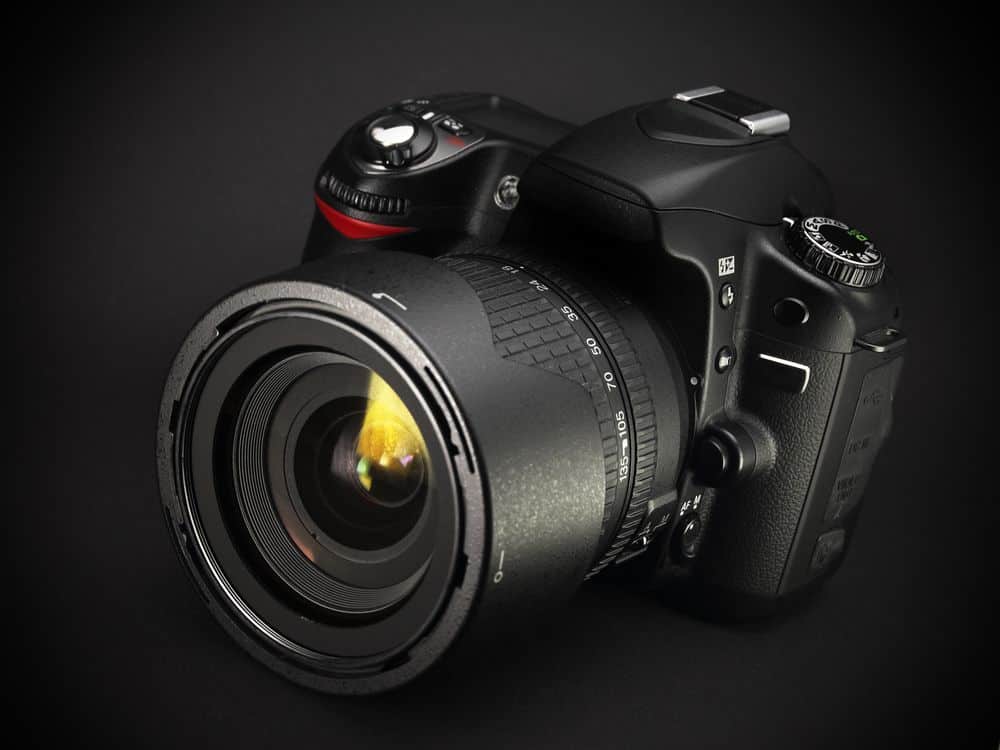
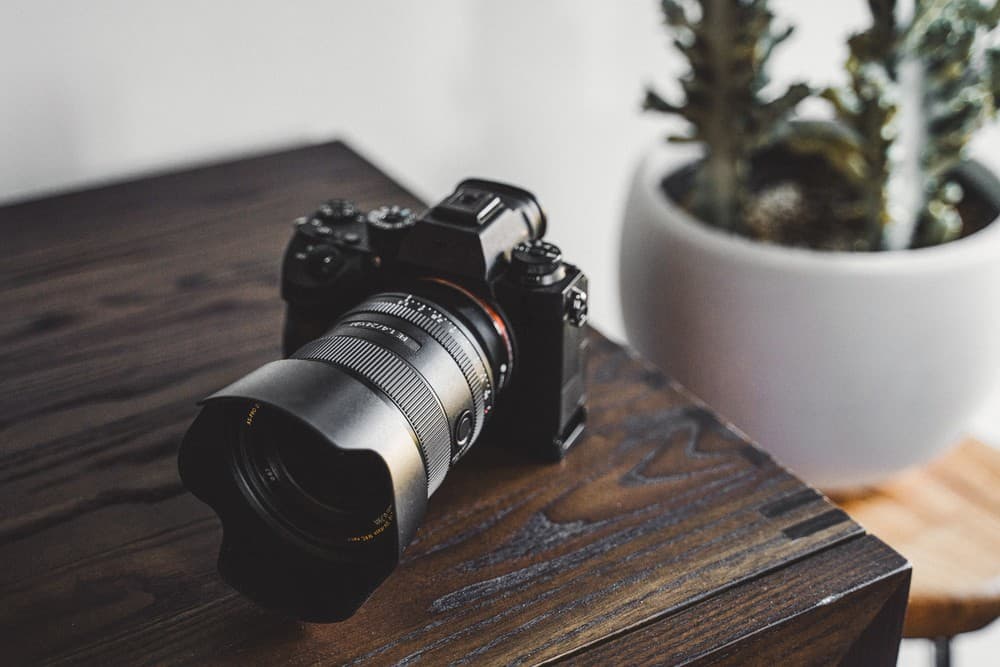
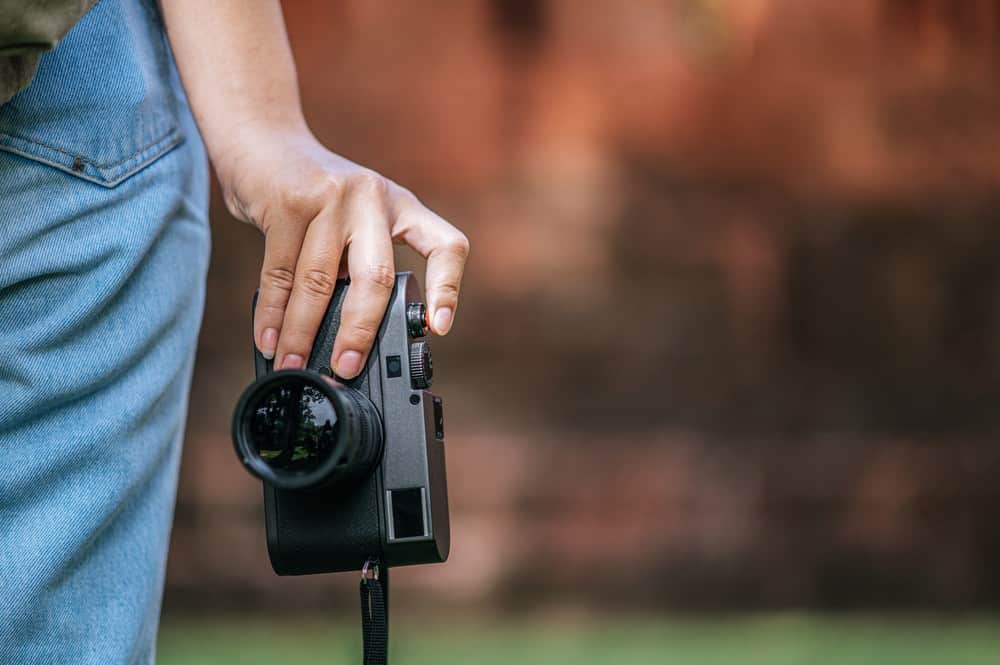
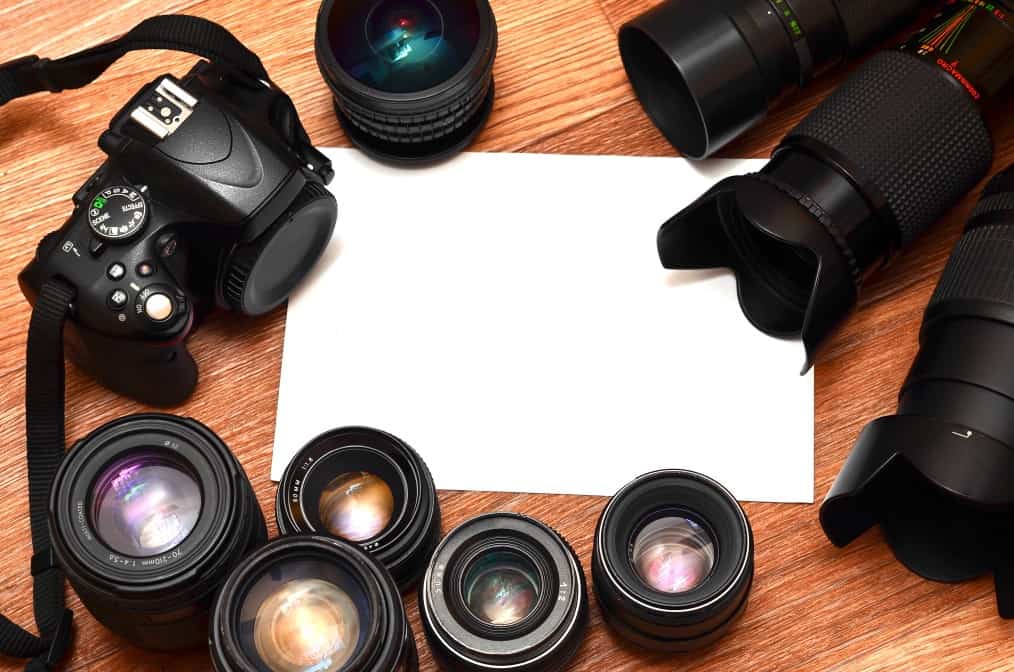
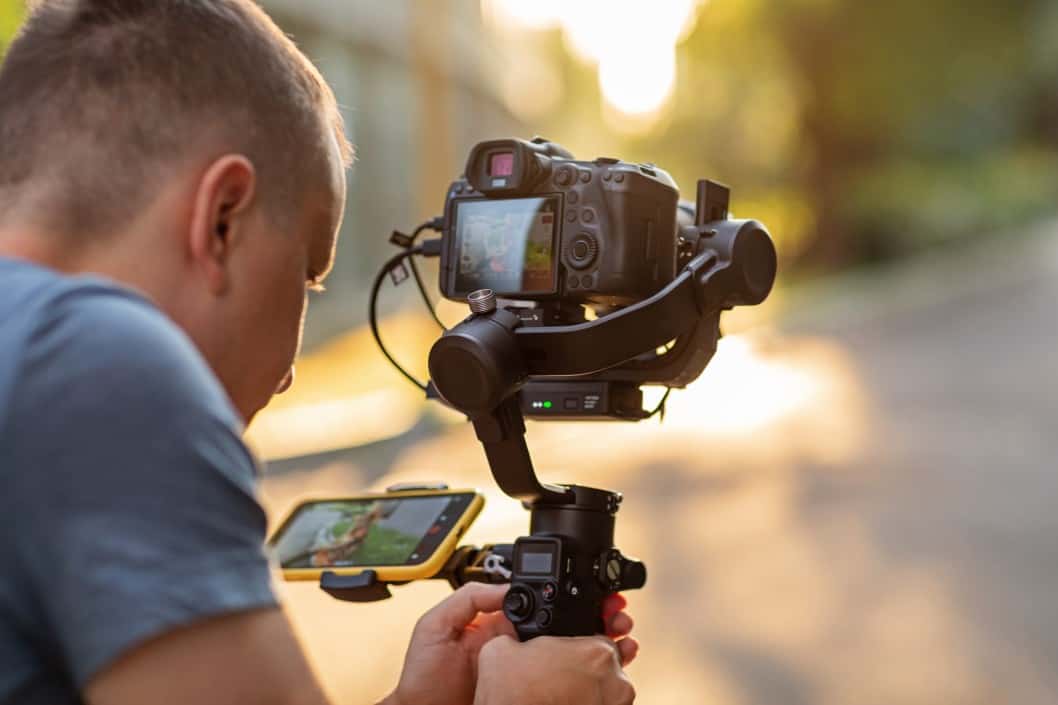
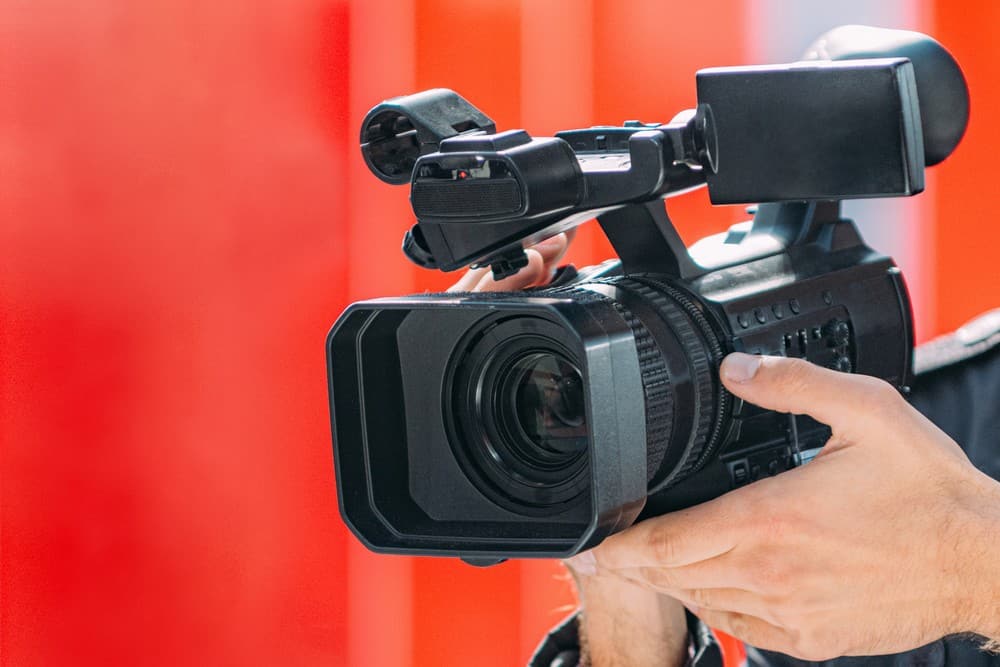
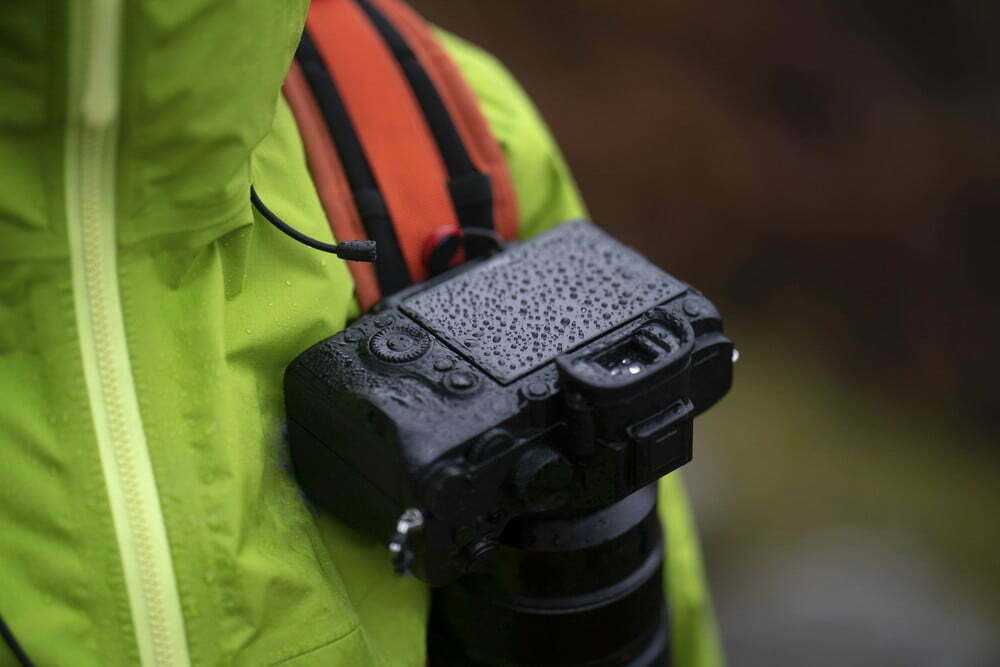
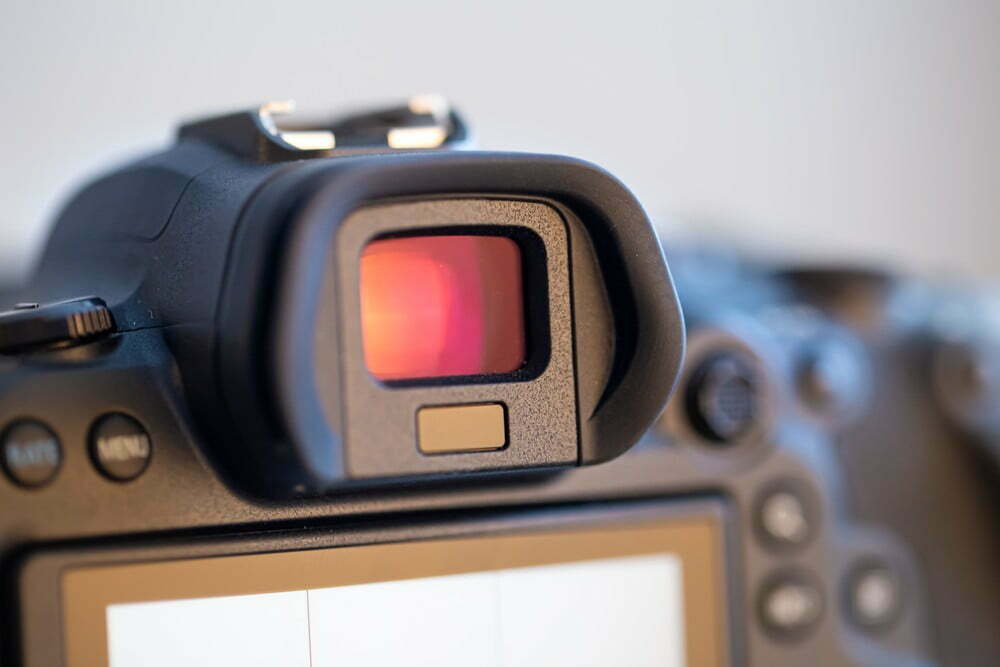
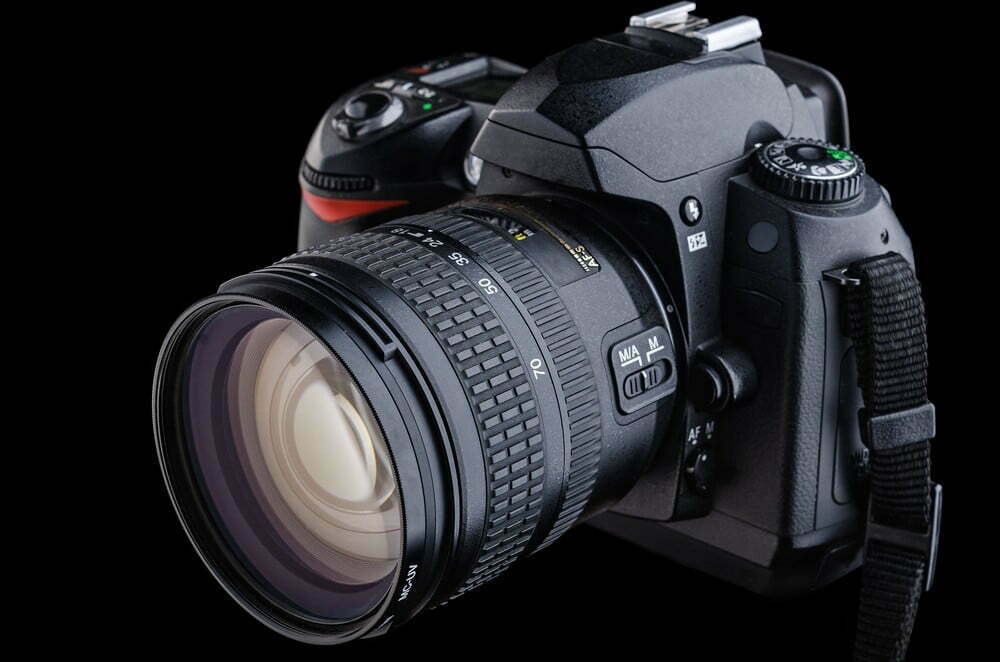
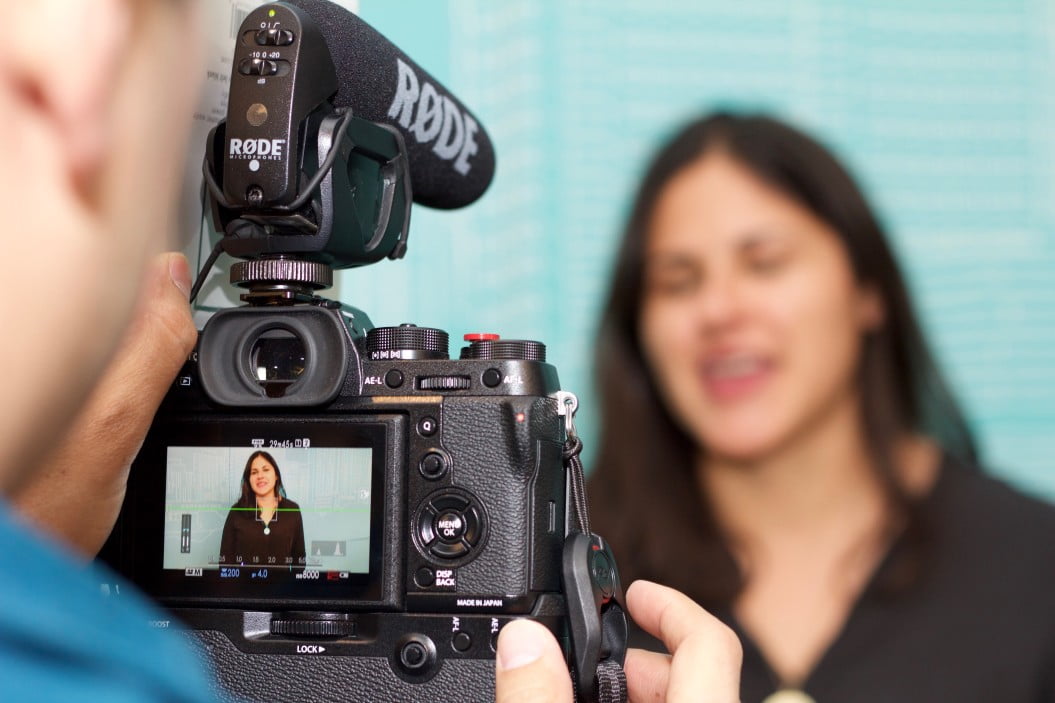
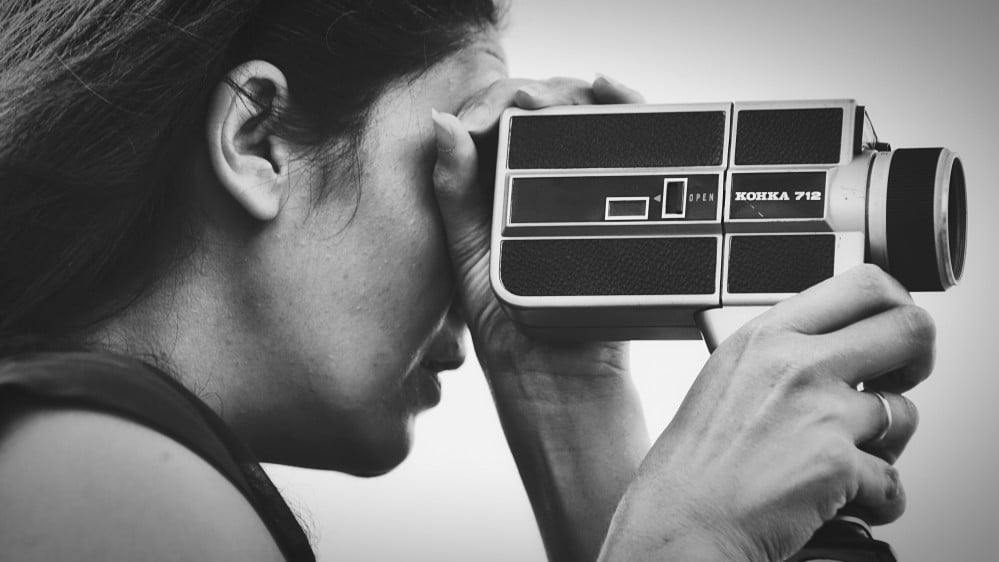
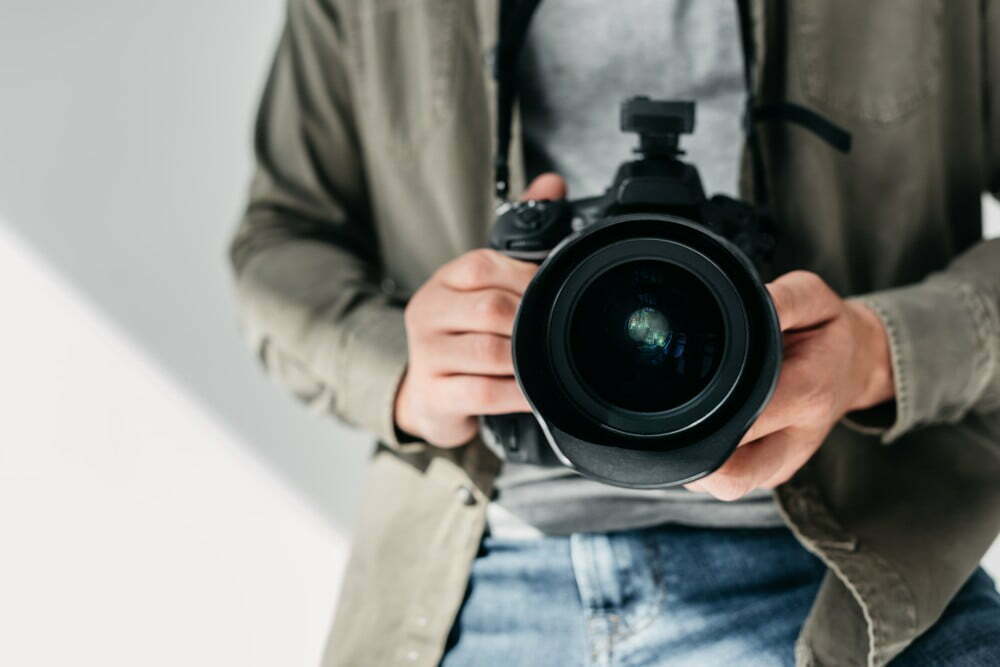
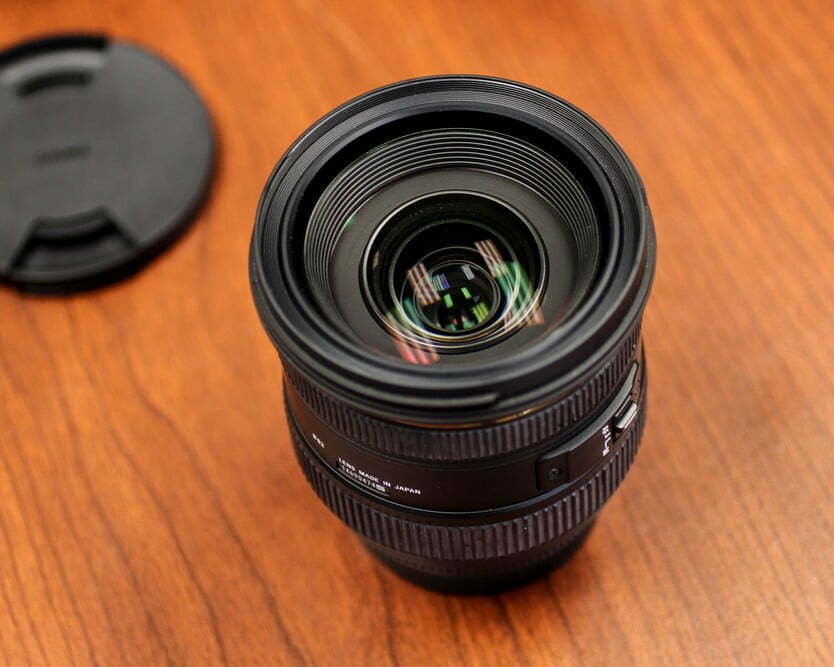
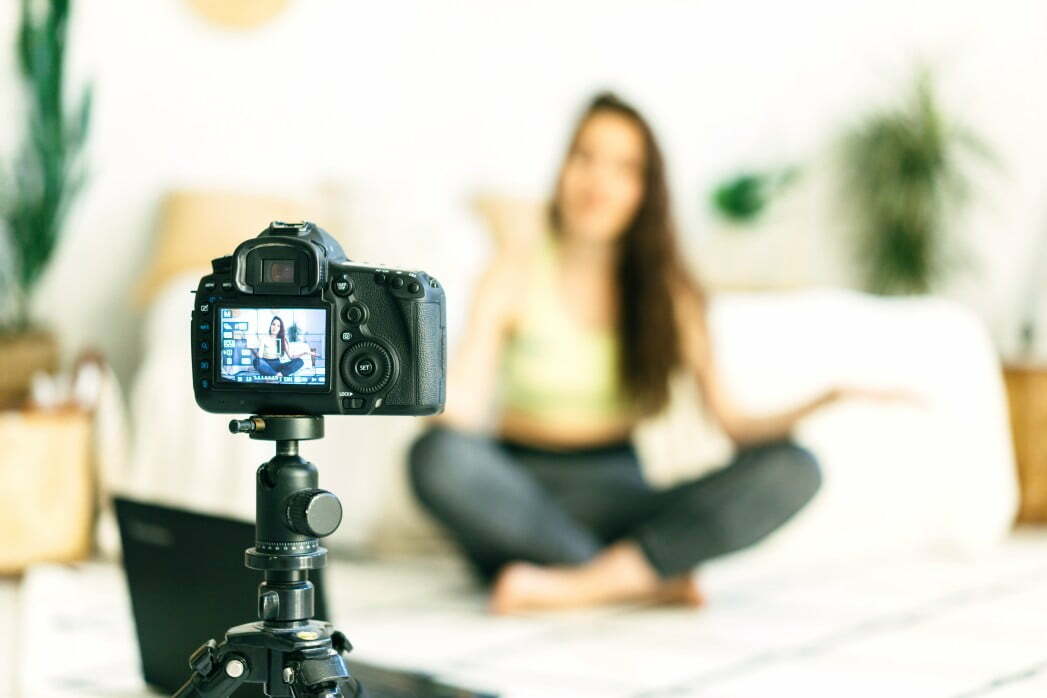
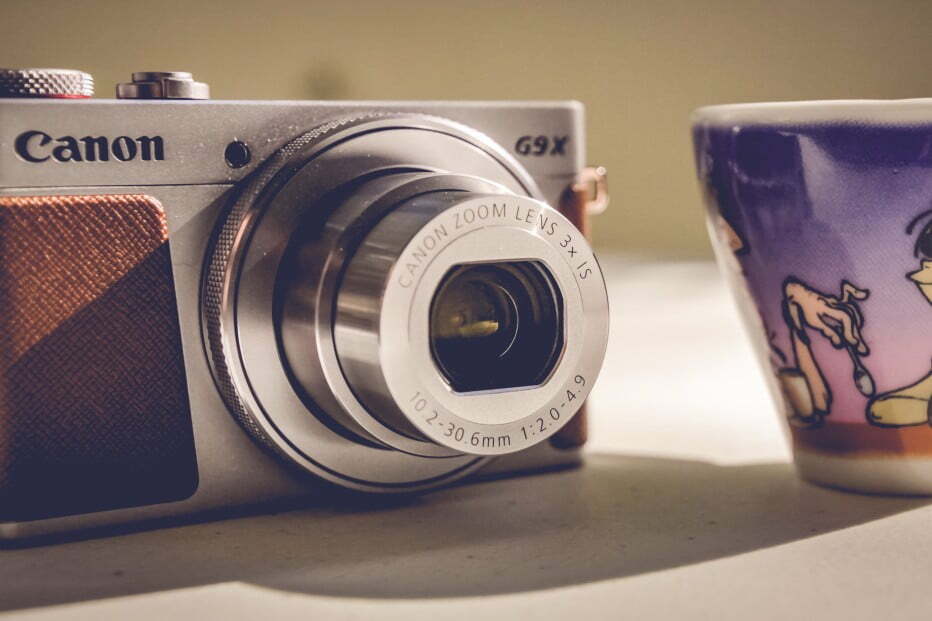
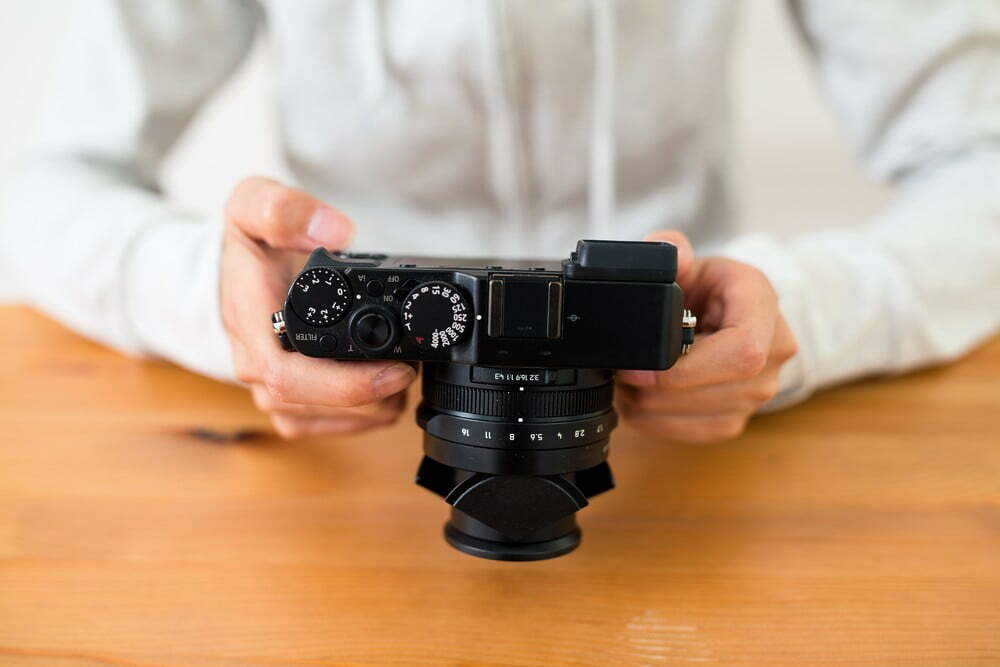
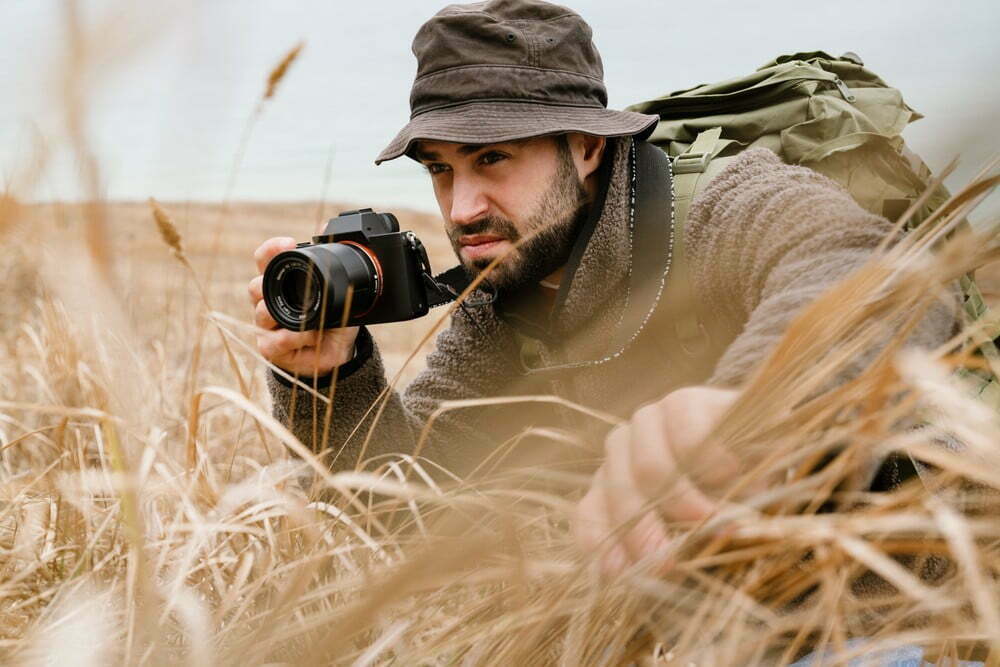
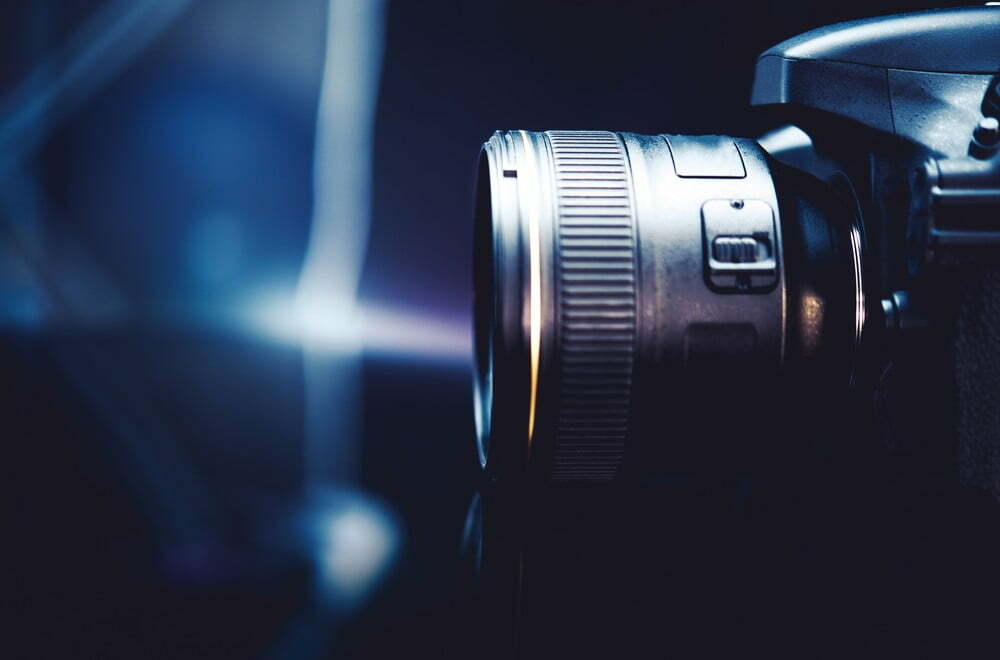

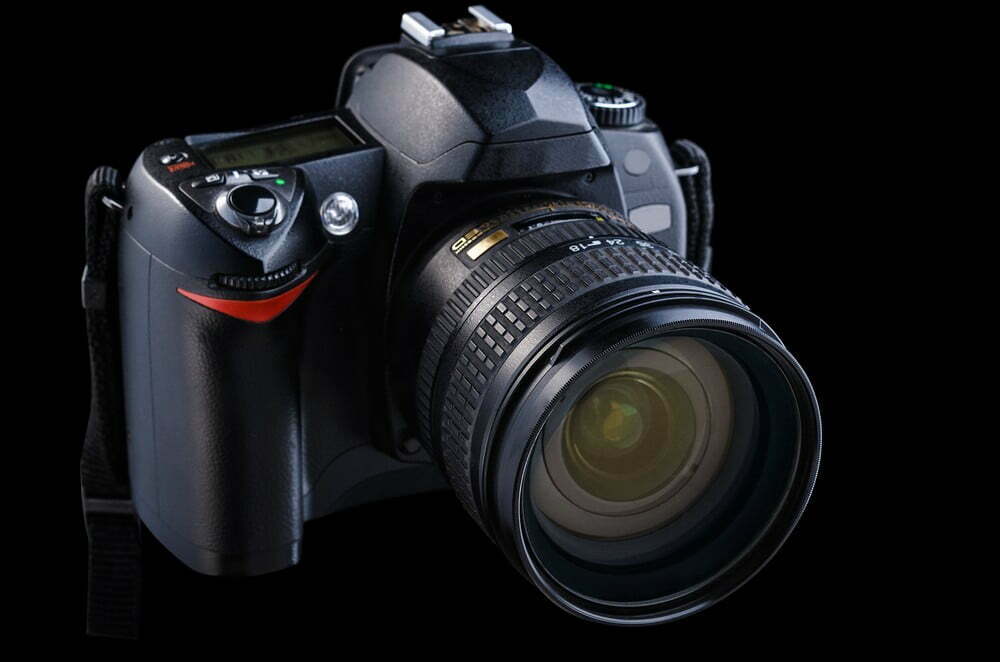
![Best Digital Cameras in [year] ([month] Reviews) 35 Best Digital Cameras in 2025 (April Reviews)](https://www.gadgetreview.dev/wp-content/uploads/what-is-resolution-on-digital-camera-1.jpg)
![Best Digital Camera Docking Stations in [year] 36 Best Digital Camera Docking Stations in 2025](https://www.gadgetreview.dev/wp-content/uploads/best-digital-camera-docking-stations-image.jpg)
![Best Digital Camera Tripods in [year] 37 Best Digital Camera Tripods in 2025](https://www.gadgetreview.dev/wp-content/uploads/best-digital-camera-tripods-image.jpg)
![Best Canon Digital Cameras in [year] 38 Best Canon Digital Cameras in 2025](https://www.gadgetreview.dev/wp-content/uploads/best-canon-digital-cameras-image.jpg)
![Best Polaroid Digital Cameras in [year] 39 Best Polaroid Digital Cameras in 2025](https://www.gadgetreview.dev/wp-content/uploads/best-polaroid-digital-cameras-image.jpg)
![Best Small Digital Camera Cases in [year] 40 Best Small Digital Camera Cases in 2025](https://www.gadgetreview.dev/wp-content/uploads/best-small-digital-camera-case-image.jpg)
![Best Digital Camera USB Cables in [year] 41 Best Digital Camera USB Cables in 2025](https://www.gadgetreview.dev/wp-content/uploads/best-digital-camera-usb-cable-image.jpg)
![Best Digital Camera Bags in [year] 42 Best Digital Camera Bags in 2025](https://www.gadgetreview.dev/wp-content/uploads/best-digital-camera-bag-image.jpg)
![Best Sony Digital Cameras in [year] 43 Best Sony Digital Cameras in 2025](https://www.gadgetreview.dev/wp-content/uploads/best-sony-digital-cameras-image.jpg)
![Best Digital Camera Accessories in [year] 44 Best Digital Camera Accessories in 2025](https://www.gadgetreview.dev/wp-content/uploads/best-digital-camera-accessories-image.jpg)
![Best Kodak Digital Cameras in [year] 45 Best Kodak Digital Cameras in 2025](https://www.gadgetreview.dev/wp-content/uploads/best-kodak-digital-cameras-images.jpg)
![Best Panasonic Digital Cameras in [year] 46 Best Panasonic Digital Cameras in 2025](https://www.gadgetreview.dev/wp-content/uploads/best-panasonic-digital-cameras-image.jpg)
![Best Compact Cameras in [year] 47 Best Compact Cameras in 2025](https://www.gadgetreview.dev/wp-content/uploads/best-compact-camera-image.jpg)
![Best Digital Cameras with Wifi in [year] 48 Best Digital Cameras with Wifi in 2025](https://www.gadgetreview.dev/wp-content/uploads/best-digital-camera-with-wifi-image.jpg)
![Best Digital Cameras for Travel in [year] 49 Best Digital Cameras for Travel in 2025](https://www.gadgetreview.dev/wp-content/uploads/best-digital-camera-for-travel.jpg)
![Best Digital Cameras for Video in [year] 50 Best Digital Cameras for Video in 2025](https://www.gadgetreview.dev/wp-content/uploads/best-digital-camera-for-video.jpg)
![Best Point and Shoot Cameras for Birding in [year] 51 Best Point and Shoot Cameras for Birding in 2025](https://www.gadgetreview.dev/wp-content/uploads/best-point-and-shoot-camera-for-birding.jpg)
![Best Nikon Digital Cameras in [year] 52 Best Nikon Digital Cameras in 2025](https://www.gadgetreview.dev/wp-content/uploads/best-nikon-digital-camera.jpg)
![Best DSLR Camera in [year] ([month] Reviews) 53 Best DSLR Camera in 2025 (April Reviews)](https://www.gadgetreview.dev/wp-content/uploads/Nikon-D810-Best-Digital-SLR-Camera-e1462497989698.jpg)
![10 Best Medium Format Digital Cameras in [year] 54 10 Best Medium Format Digital Cameras in 2025](https://www.gadgetreview.dev/wp-content/uploads/best-medium-format-digital-camera-scaled-1.jpg)
